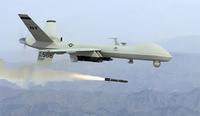-
U.S. infrastructure drops in world infrastructure ranking

The U.S. infrastructure has slipped badly in the world’s infrastructure ranking, both in absolute and relative terms, according to the Global Competitiveness Report for 2012-13, published earlier this month by the World Economic Forum.
-
-
San Diego to receive $16.9 million in DHS funding
Some cities see DHS cutting its funding for their terrorism-related programs, but other cities see such funding increasing. A case in point is San Diego, which will receive $16.9 million in DHS funding to strengthen the city’s security against terrorist attacks.
-
-
Game changer: Russia to supply Syria with advanced S-300 air-defense systems

In what should be regarded as a major victory for Iran and its two regional allies, Syria and Hezbollah, Russia has announced it would provide Syria with advanced S-300 air defense missiles. The United States, Israel, and EU and NATO countries have been vigorously, and anxiously, pressing Russia not to go ahead with the sale of the missiles, because the deployment of the S-300 would make the imposition of a no-fly zone over Syria, let alone air attacks on targets inside Syria — like the ones Israel conducted in late January and early May — much costlier.
-
-
McCain meets with Syrian rebel leaders in Syria
Senator John McCain (R-Arizona) on Monday, Memorial Day, met with Syrian rebel leaders. McCain’s visit makes him the highest ranking U.S. official to enter Syria since the civil war began in 2011.Rebel commanders asked that the U.S. consider providing heavy arms to the Free Syrian Army, set up a no-fly zone in Syria, and conduct airstrikes on Hezbollah. McCain, for his part, asked the rebels how they planned to reduce the presence of Islamic extremists in rebel ranks.
-
-
Biometric technology identifies one of the Boston Marathon bombers
In a study which evaluated some of the latest in automatic facial recognition technology, researchers were able quickly to identify one of the Boston Marathon bombing suspects from law enforcement video, an experiment that demonstrated the value of such technology.
-
-
DHS cuts funding for Las Vegas’ terrorism-related programs
Federal aid to terrorism-related programs in Las Vegas has been steadily decreasing in recent years. Next year, the city which boasts fifteen of the world’s largest hotels, and which is home to more than forty million tourists a year, will no longer receive any DHS funds for terrorism-related security programs.
-
-
New Obama policy sets higher standards for drone use

In a major policy speech Thursday, President Obama announced plans to set higher standards for the use of drones in the fight against terrorists. He defended the use of the unmanned vehicles in that war, however, including when, in extreme situations, they are used to kill American citizens.
-
-
Report: U.S. companies should consider counter-hacking Chinese hackers
A group studying how the United States should respond to the sustained campaign of cyberattacks conducted by Chinese government hackers against U.S. companies, said the United States should seriously consider a campaign of retaliatory cyberattacks against the hackers.
-
-
GOP lawmakers urge Obama not to link Keystone decision to climate policies
Democrats who are uncomfortable with the Keystone XL pipeline have urged President Obama to consider attaching policies requiring cuts in greenhouse gases emissions to his approval of the project. Republican lawmakers are urging the president not to link approval of Keystone to climate change policies.
-
-
Administration more actively to support expansion of fracking
The Obama administration is leaning toward offering more active support for the expansion hydraulic fracturing, or fracking, despite the opposition of environmental groups.
-
-
Terrorists kill British soldier in London in broad daylight
Two men – one a British-born Nigerian, the other a naturalized Nigerian – yesterday attacked and killed a British soldier in broad daylight outside his London barracks. The used meat cleavers and knives. The attack was caught on the smartphones of passersby. The attackers stayed near the body until the police arrived, explaining their violence to n-lookers: “We swear by almighty Allah we will never stop fighting you. The only reason we have done this is because Muslims are dying every day. This British soldier is an eye for an eye, a tooth for a tooth,” one of them said.
-
-
Immigration bill more acceptable to Senate Republicans
The immigration bill passed by the Senate Judiciary Committee is picking up Republican support. Committee chairman Patrick Leahy (D-Vermont) removed a major obstacle to the bill’s passing the Senate by withdrawing his own amendment to it, an amendment which would have given the American spouse in a gay relationship the right to sponsor the non-American partner for legal status in the United States. The bill also added provisions conditioning the beginning of the path-to-citizenship process on proven bolstering of border security. Senate Republican Leader Mitch McConnell (R-Kentucky) told reporters he will not block the measure from reaching the senate floor.
-
-
AFL-CIO vows to fight Hatch’s amendments to immigration bill

Democrats on the Senate Judiciary Committee will try to persuade skeptical Democrats that Hatch’s changes to the immigration bill, which brought it closer to the preferences of the high-tech industry, are not necessarily bad for U.S. labor. The AFL-CIO does not agree, and vows to fight Hatch’s amendments
-
-
DHS debars scanner maker from government contracts

The Transportation Security Administration (TSA) has sent OSI Systems, the manufacturer of airport body scanners, a debarment notice which would prevent the company from receiving government contacts in the future. The notice was sent to the company after TSA determined that the company had failed to address security concerns about its scanners.
-
-
House will see floor battle today over Keystone XL pipeline
Republican and Democrats lawmakers are set to engage in a fierce battle on the House floor over the fate of the Keystone XL project. Representative Lee Terry’s (R-Nebraska) proposed legislation to allow TransCanada to start construction of the Keystone XL pipeline, which runs from Hardisty, Canada through seven states to Houston, Texas. The bill will come to the House floor today.
-
More headlines
The long view
Factories First: Winning the Drone War Before It Starts
Wars are won by factories before they are won on the battlefield,Martin C. Feldmann writes, noting that the United States lacks the manufacturing depth for the coming drone age. Rectifying this situation “will take far more than procurement tweaks,” Feldmann writes. “It demands a national-level, wartime-scale industrial mobilization.”
No Nation Is an Island: The Dangers of Modern U.S. Isolationism
The resurgence of isolationist sentiment in American politics is understandable but misguided. While the desire to refocus on domestic renewal is justified, retreating from the world will not bring the security, prosperity, or sovereignty that its proponents promise. On the contrary, it invites instability, diminishes U.S. influence, and erodes the democratic order the U.S. helped forge.
Fragmented by Design: USAID’s Dismantling and the Future of American Foreign Aid
The Trump administration launched an aggressive restructuring of U.S. foreign aid, effectively dismantling the United States Agency for International Development (USAID). The humanitarian and geopolitical fallout of the demise of USAID includes shuttered clinics, destroyed food aid, and China’s growing influence in the global south. This new era of American soft power will determine how, and whether, the U.S. continues to lead in global development.
Water Wars: A Historic Agreement Between Mexico and US Is Ramping Up Border Tension
As climate change drives rising temperatures and changes in rainfall, Mexico and the US are in the middle of a conflict over water, putting an additional strain on their relationship. Partly due to constant droughts, Mexico has struggled to maintain its water deliveries for much of the last 25 years, deliveries to which it is obligated by a 1944 water-sharing agreement between the two countries.
How Disastrous Was the Trump-Putin Meeting?
In Alaska, Trump got played by Putin. Therefore, Steven Pifer writes, the European leaders and Zelensky have to “diplomatically offer suggestions to walk Trump back from a position that he does not appear to understand would be bad for Ukraine, bad for Europe, and bad for American interests. And they have to do so without setting off an explosion that could disrupt U.S.-Ukrainian and U.S.-European relations—all to the delight of Putin and the Kremlin.”
How Male Grievance Fuels Radicalization and Extremist Violence
Social extremism is evolving in reach and form. While traditional racial supremacy ideologies remain, contemporary movements are now often fueled by something more personal and emotionally resonant: male grievance.
